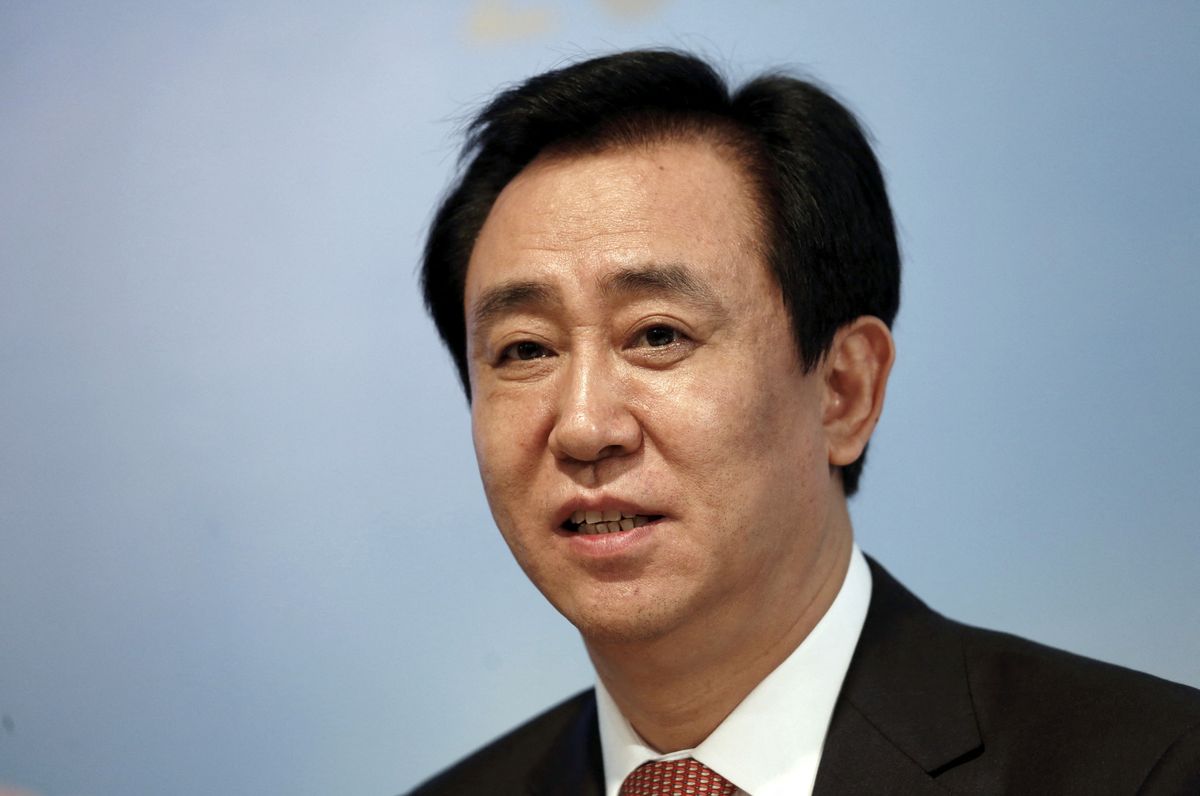Evergrande saga updates – chairman and founder Xu Jiayin faces investigation
Chinese property giant Evergrande's chairman and founder Xu Jiayin is now in hot water, with the police keeping a close watch on him.

A few minutes every morning is all you need.
Stay up to date on the world's Headlines and Human Stories. It's fun, it's factual, it's fluff-free.
The backstory: Chinese property giant Evergrande's chairman and founder Xu Jiayin (許家印), or Hui Ka Yan in Cantonese, was once the wealthiest person in Asia, with a fortune of US$42.5 billion. Born into a poor rural family in 1958, Xu’s early years were marked by the hardships of China's Great Leap Forward, a period marred by a devastating famine. After completing his university education in 1982, Xu began his career as a steel technician.
But his life took a dramatic turn when he ventured into the world of property sales in Guangzhou. In 1996, he founded Evergrande, and the rest, as they say, is history. The company skyrocketed after that. Evergrande’s strategy involved taking out substantial loans and pre-selling apartments, sometimes even before construction began. Over time, Evergrande diversified into wealth management, electric vehicles and food and beverages. It even entered the world of football by acquiring a majority stake in Guangzhou FC.
But in 2020, Beijing introduced new regulations to rein in the mounting debts of major real estate players like Evergrande. That's when Evergrande found itself buried under a mountain of liabilities exceeding US$300 billion and became the first property giant to default on its debts in 2021. This set off a chain reaction in China's property sector. More defaults cropped up, homebuyers were going on protests and even the government was feeling the economic strain. The property crisis was a big deal because China's real estate sector contributes up to 30% of the nation's GDP.
More recently: In August, Evergrande filed for bankruptcy protection in the US, attempting to shield its American assets from financial turmoil. During the same month, after a 17-month hiatus, Evergrande's trading resumed on the stock market.
Last week, Evergrande's mainland subsidiary, Hengda Real Estate, defaulted on a 4 billion yuan (US$547 million) debt, causing more trouble for the company. Meanwhile, reports are also swirling about the detention of several current and former top execs.
The development: Xu is now in hot water, with the police keeping a close watch on him. The company halted trading of its shares last week after reports surfaced of Xu’s involvement in an ongoing investigation, where he faces allegations of "illegal crimes." Trading resumed on Tuesday. Details on this investigation are scarce, but there's an opinion piece in the state-run Global Times that says that safeguarding ordinary citizens in the ongoing property crisis is the main priority.
Key comments:
"He was an example of how anybody can become rich if you're smart enough and if you work hard enough," said Alicia Garcia Herrero, the chief economist for Asia-Pacific at French investment bank Natixis.
"Xi has made it clear that extreme wealth, especially when displayed publicly like Hui, isn't good for the economy and the society," said Dexter Roberts, Director of China affairs at the Mansfield Center at the University of Montana, to the BBC.
"China's property-sector stress will continue to pose cross-sector credit risks in the near term," said Lan Wang and Duncan Innes-Ker of Fitch Ratings.
"Minimising homebuyers' losses at all costs should be the next biggest consideration in dealing with the Evergrande crisis," wrote Hu Xijin, the state-run Global Times former chief editor.




Comments ()